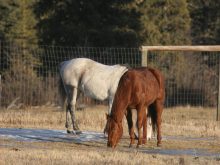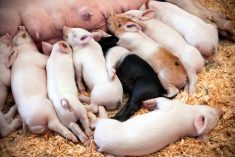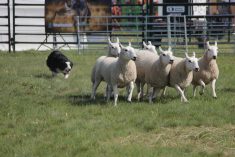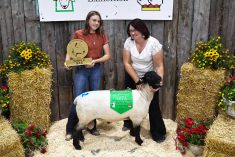OLDS, Alta. – A wee bit o’ Scotland creeps into Randy Dye’s voice as he calls his favourite stock dog.
Using one of five basic commands for the black and white dog to move sheep into a pen, his voice and whistle commands are the universal language of those who love and work Border Collies.
“Come back,” “that’ll do,” “there,” and “lie down” are heard with the same Highland brogue whether on an Alberta Hutterite colony or in Brazil.
Involved with Border Collies since 1988, the Olds trainer figures he has worked with nearly 300 dogs. They are used for herding sheep and cattle and shown in competitions. Willing to herd anything, some also use them to move pasture-raised poultry and pigs.
Read Also
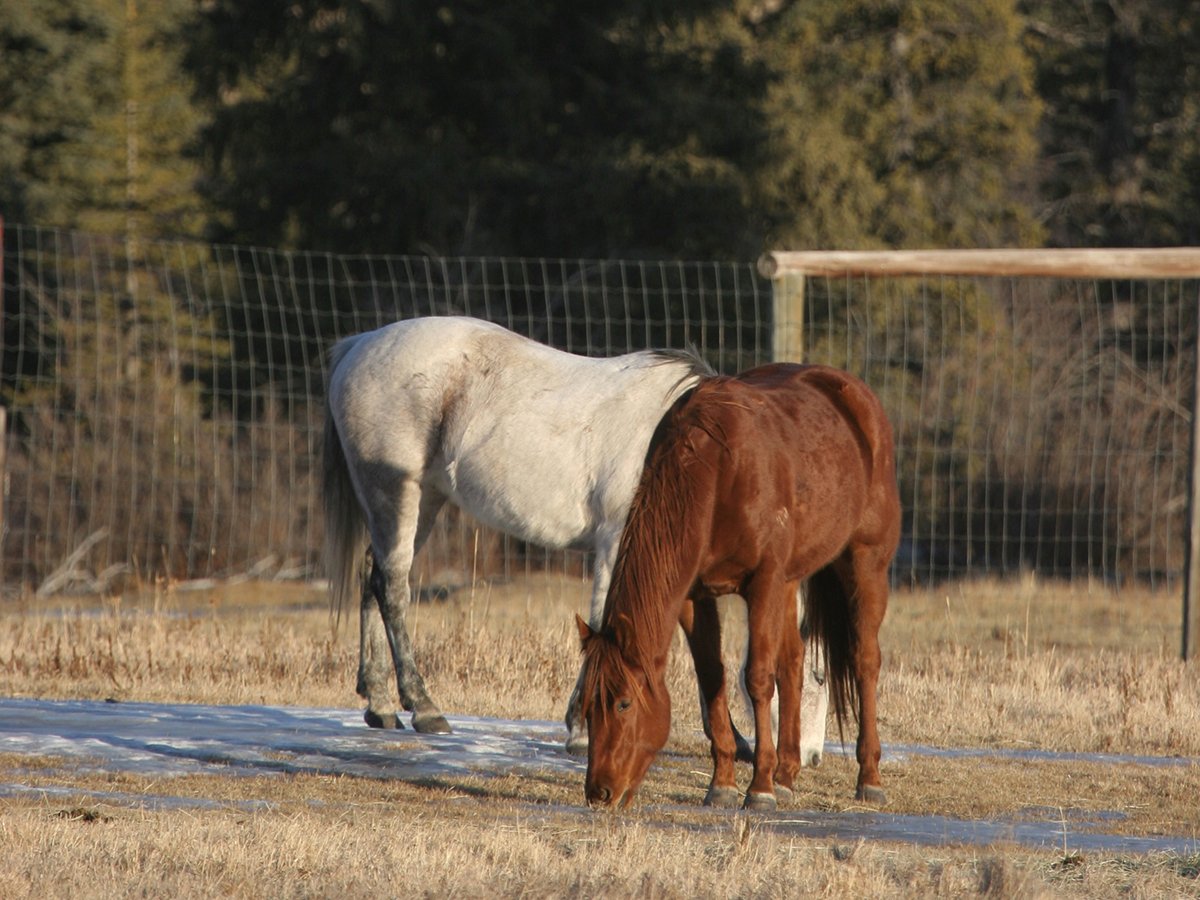
Why selenium is still an important factor in horse health
Selenium is an essential equine trace mineral that supports antioxidant defense, muscle integrity, immune function, metabolism and thyroid activity.
“I know a lot of ranchers wouldn’t do without them,” Dye said following a demonstration at the Mountainview County Fair in Olds.
He got into the business because he had sheep that were almost unmanageable. When he saw what a good dog could do, he was determined to get one and attended a spring weekend clinic. By the fall, he attended his first dog trial, which he won.
He discovered he was a natural trainer, and now a large part of his income is derived from his dog business.
The most important part of the job is training people to handle these intelligent dogs, which instinctively drive and gather livestock.
“A lot of people get a dog and they don’t know how to work it, so they come to me and I teach them,” he said.
While many of his clients own livestock and need a sound working dog, a growing number are acreage owners interested in entering trials and shows.
Dye has trained other breeds, but his favourite remains the black and white Border Collies with their sharp eyes and keen work ethic.
“Every breed has a purpose,” he said. “I like the Border Collie because they have a little more drive, a little more learnability.”
These dogs are capable of driving and gathering livestock, while other breeds only perform one task.
“For a good all-round dog, you can’t beat a Border Collie because they’re so smart.”
He sometimes breeds the dogs, but mostly trains the animals for other owners. The dogs bond to him as the alpha or leader but adapt quickly when they return to their owners.
He prefers to start training a dog when it reaches about 10-12 months. While most dogs are trainable, some do not work as well and become suitable family pets.
“The majority of dogs will work,” he said. “Some are better than others. Every litter can’t be perfect.”
A good working dog can last 10 years.
He recommends two working dogs for the farm. They can work together and one serves as a backup for the other. A good mix is an older animal working with a younger one.
One of the first physical attributes he looks for is the dog’s tail. A working dog keeps its tail down as it surveys the herd. A wagging tail means the dog is not doing its job.
“When their tail comes down, they are locking down and ready to go to work,” he said.
Before training, the dogs must be well socialized, so he hires local teenaged girls to raise the puppies until they are 10 months old.
While an off-farm job keeps him busy during the day, Dye is able to enter competitions and demonstrations.
Competitions are especially worthwhile. For example, the Calgary Stampede event offers $20,000 in prize money with a top payout of $10,000.
“That’s a pretty decent wage for an afternoon.”



